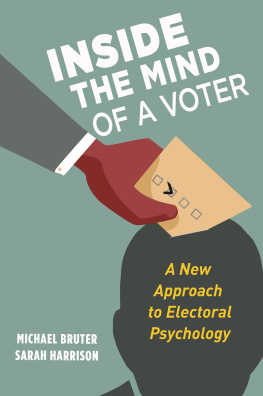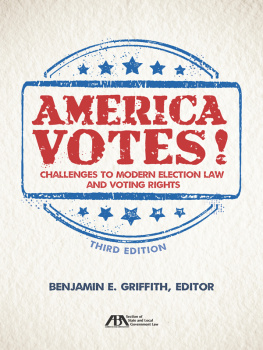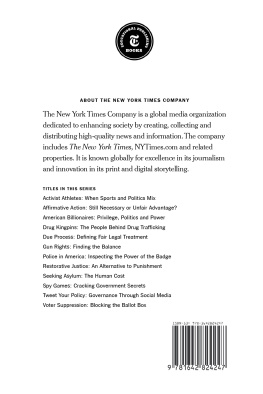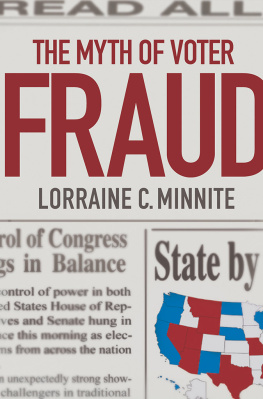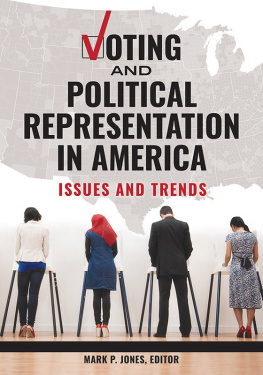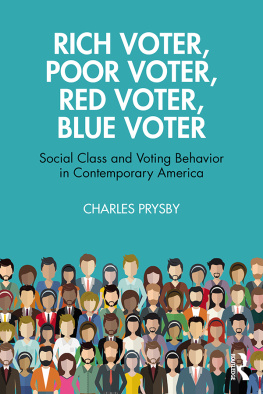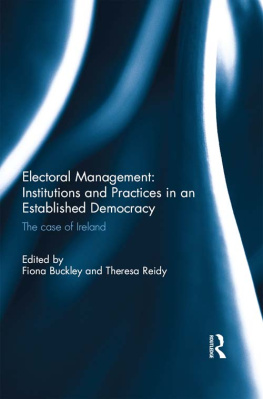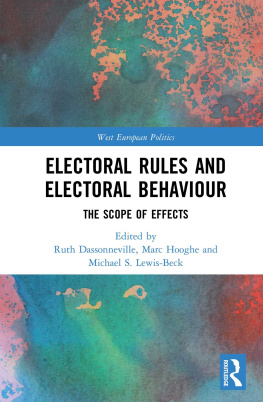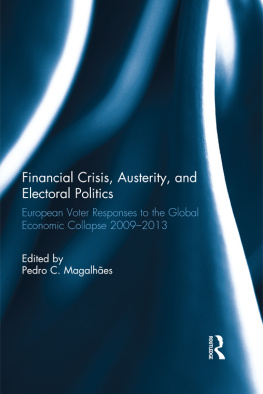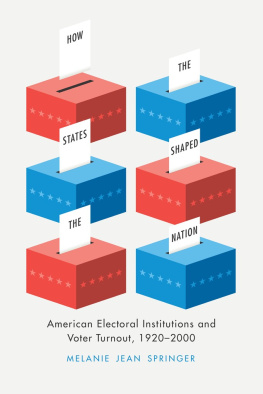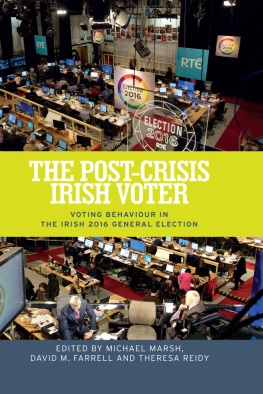Copyright 2020 by Princeton University Press
Requests for permission to reproduce material from this work should be sent to
Published by Princeton University Press
41 William Street, Princeton, New Jersey 08540
6 Oxford Street, Woodstock, Oxfordshire OX20 1TR
press.princeton.edu
All Rights Reserved
Library of Congress Control Number: 2020931097
ISBN 9780691182896
ISBN e-book 9780691202013
Version 1.0
British Library Cataloging-in-Publication Data is available
Editorial: Sarah Caro
Production Editorial: Leslie Grundfest
Jacket/Cover Design:
Publicity: Kate Hensley, US; and Kate Farquhar-Thompson, UK
Jacket/Cover Credit: Shutterstock
Printed in the United States of America
10 9 8 7 6 5 4 3 2 1
PREFACE AND ACKNOWLEDGEMENTS
For the authors, on so many levels, this has not felt quite like writing any of our other books. First, this book stems from the intellectual stimulation of some ambitious research projects we were able to conduct. We acknowledge below the sponsors who made these possible, but we must already point out that when it comes to ambitious research based on intellectual curiosity, generous open schemes such as European Research Council (ERC) Frontier grants and Economic and Social Research Council (ESRC) Standard grants are simply invaluable. Worldwide, research funding bodies are under pressure to impose research priorities, but any attempt to decide what researchers should study todayeven based on researchers inputis bound to highlight what we should really have been researching ten years ago. Open schemes, by contrast, allow researchers to convince peers that they have new ideas worth exploring.
Second, the work invited us to get out of our methodological comfort zone and design new approaches that we had never explored before to collect and code an intimidating mass of heterogeneous data, in order to observe elections from more angles than we had ever previously imagined.
Third, there is something very odd in the feeling that the period in which you live is uniquely grave and momentous. To become scientifically excited, as academics, about something which, as citizens, we may often worry about or even deplore leaves a quasi-schizophrenic impression in the mind. We suspect that many of our peers have experienced similar feelings in this period.
For all these reasons, this is a book in which we have invested more time and thought than in any of those that we had writtenbe it together or separatelybefore. This is not so much because of the analytical scope and the mass of data to code, analyze, and ponder about, but rather because we wanted to be certain about what exactly we were trying to say. It had been our original intention to write a book that would revive our disciplines interest in psychological explanations of the vote that are, paradoxically, out of fashion at the very time that we need them most; but we started gradually to ponder whether we might have a more radical and more fundamental message (or two) to deliver. What if we were looking at elections entirely the wrong way round? What if it mattered a lot more to understand whether elections make people happy, and give them a sense of closure and resolution, than to focus on why they vote for Mr X or Ms Y? What if the universal assumption that the vote is the translation of a direct preference was actually wrong, and what if, in fact, voters do not enter the polling booth like spoiled children wanting the biggest ice cream, but rather like teachers about to grade an essay, with an implicit role to play? What if elections could bring, at the very same time, the best and the worst out of the same individuals, and how would such a thing even be possible? What, indeed, if the very existence of elections had changed the nature of mankind? These are some of the arguably provocative questions that we want to address in this book.
Such intellectual mountains would obviously be impossible to climb without considerable help, more in fact than we could possibly acknowledge; but to start, at least: we thank our projects sponsors, the ERC, the ESRC, and LSE REFSC. Apart from thanks to the institution itself, we want to thank Frank Kuhn for being an exceptional research officer for our ERC project, always willing to talk about the science and the research rather than the technicalities of our grant management, as well as the whole Communication team at the ERC, which did so much to help promote the project. We also want to thank our long-time survey partners Opinium (in particular James Endersby, James Crouch, Adam Drummond, Olivia Playle, and Priya Minhas), who directly sponsored some of our later studies when we had no funds for them; the Falling Walls Foundation which organized and financed our visual experiment as part of the wonderful 2012 Falling Walls Conference; and Tony Langham, Clare Parsons, Rimmi Shah, and Ralph Jackson from Lansons, who organized amazing events to share our key findings.
We thank too the heads and senior staff from Electoral Commissions who have opened their doors and collaborated with us, hoping that our findings would enable them to deliver better electoral democracy to their citizens, notably Nomsa Masuku and Lonwabo Jwili (respectively Commissioner and Strategic Stakeholder Officer, Independent Electoral Commission of South Africa); Dean Logan (Registrar and County Clerk, Los Angeles County); Phil Thompson (Head of Research, UK Electoral Commission); Tamar Zhvania (Chairperson, Central Electoral Commission of Georgia); Natia Zaalishvili (Director of the Centre for Electoral Systems Development, Reforms, and Training, Georgia); Tom Rogers, Anna Stewart, Andrew Trainer, and Dale Easterby (respectively Electoral Commissioner, Assistant Commissioner, Director of Research and Electoral Integrity, and Assistant Director for Research Coordination, Australian Electoral Commission); Hisham Kuhail (CEO, Palestinian Central Electoral Commission); and Anne-Julie Clary and volunteer polling observers throughout France.
We thank our wonderful team of researchers, Eri Bertsou, Sandra Obradovic, Erin Saltman, Annie Bird, Julie Vogt, Elena Pupaza, Eponine Howarth, Adele Scemama, Kelly Benguigui; our ECREP visitors, Sophie Lecheler (Vienna) and Soetkin Verhaegen (Stockholm); our Youth Participation Project colleagues, Bart Cammaerts, Shaku Banaji, and Nick Anstead; and our hosts at Columbia University, McGill University, and the ANUCES, Jacqueline Lo, Annmarie Elijah, Kasia Williams, and Jasmine Henkel. We also thank the wonderful staff from the LSE Research and Innovation Division and from the Department of Government for their unstinting help, and James Robins for helping to film our repeat visual experiment in the UK. Finally, we are immensely indebted to the four anonymous reviewers, to Charlie Allen, Hannah Paul, the entire Princeton University Press team, our copy editor Francis Eaves, and to our wonderful editor Sarah Caro, who helped us from the beginning to the end to improve this book.
Remaining limitations are undoubtedly ours alone, but we feel proud and happy that Inside the Mind of a Voter is the result of a true co-authorship, shaped by mutual trust and respect, many walks spent thinking out loud, and constant dialectic and discussion, rather than simply representing a division of labour. After six books and many articles and projects, we still feel privileged to work together.

